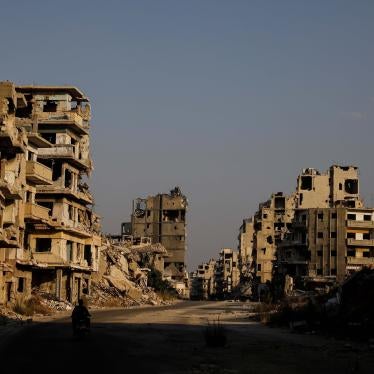The sudden escalation of fighting in Syria, as armed groups make serious advancements, carries an important lesson about refugee protection. For the past several years, governments in Europe and the Middle East have increasingly been itching to send Syrian refugees home, arguing that the fighting is over and it’s safe for them to return – despite international legal obligations and the reality on the ground in Syria.
While most host countries maintained temporary protection as the Syria conflict dragged on, the cracks have been growing. Human Rights Watch has documented both deportations and coerced “voluntary returns” of Syrian refugees.
Human Rights Watch has warned repeatedly that Syria is not safe for returns. Our 2019 report, “Our Lives Are Like Death,” documented the grave abuses and the harsh economic realities Syrians faced upon returning from Jordan and Lebanon, including arbitrary arrests, torture, and extra-judicial killings at the hands of Syrian security agencies. More recently, we documented the arrests of four Syrian men fleeing the war in Lebanon to Syria, and we reported that at least two Syrian men deported from Lebanon and Türkiye to Syria since 2023 had died in Syrian government detention in suspicious circumstances.
The 1951 Refugee Convention includes a “cessation clause” that says a refugee no longer needs protection when the circumstances that caused the person to become a refugee “have ceased to exist.” The UN Refugee Agency states that the changed circumstances must be fundamental and durable. That the same repressive government of Syrian President Bashar al-Assad, unreformed in its brutal practices, remains in power is the most obvious indication of lack of fundamental change. But the recent escalation of violence in Aleppo and elsewhere also proves that a long, unresolved, simmering conflict can erupt into full hostilities, a caution against premature returns.
While refugees often make significant contributions to their host communities, hosting them can feel like a strain, especially when their numbers are large and the conflicts protracted. But sending refugees back to destitution and danger is not an option that can be squared with the basic principles of humanity and human rights law. As the violence in Syria spikes again, host societies that have accepted Syrian refugees should be thankful that they did not send them back before it was safe to do so.









